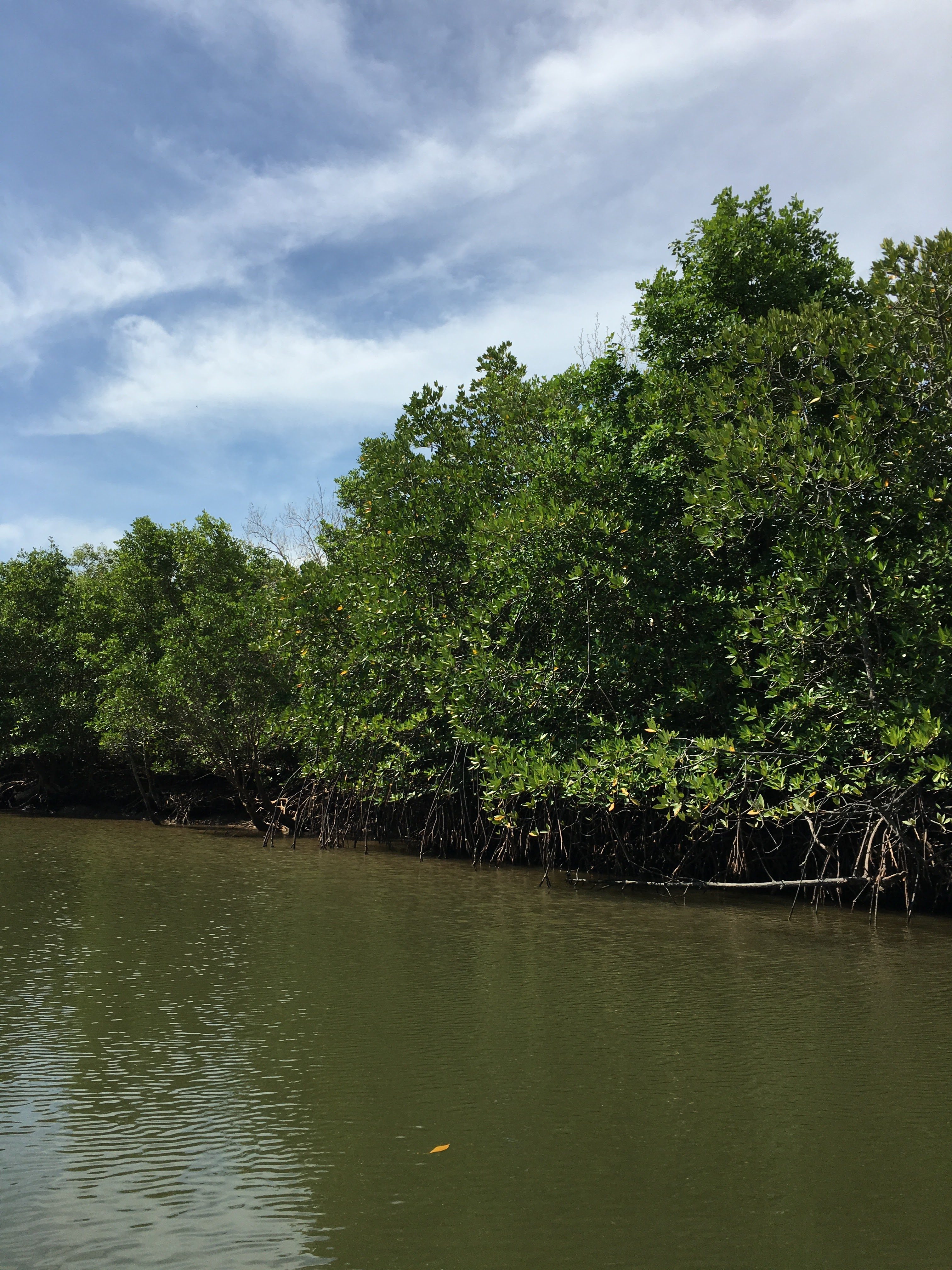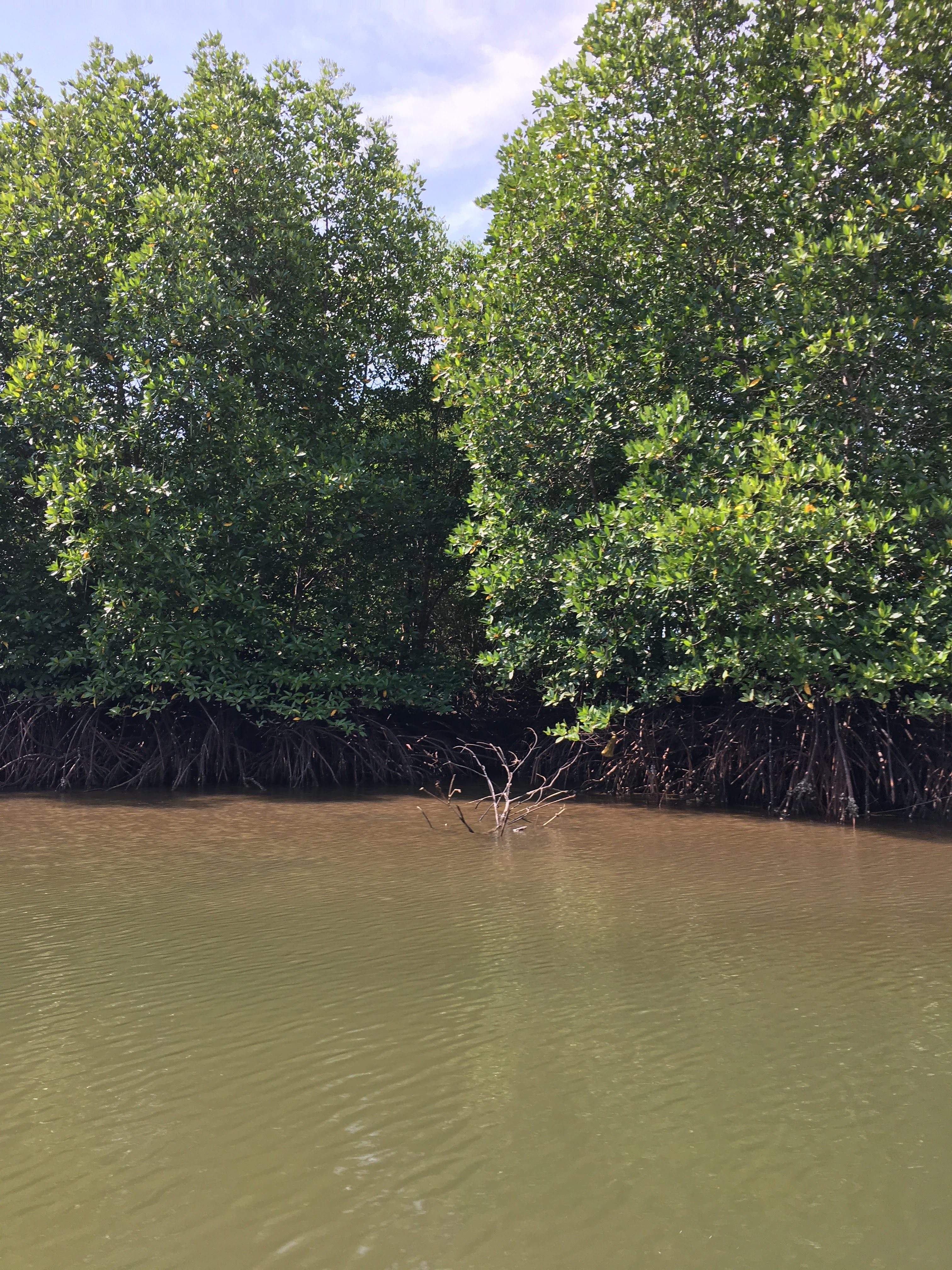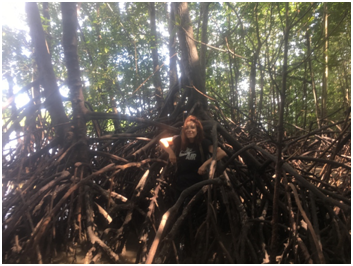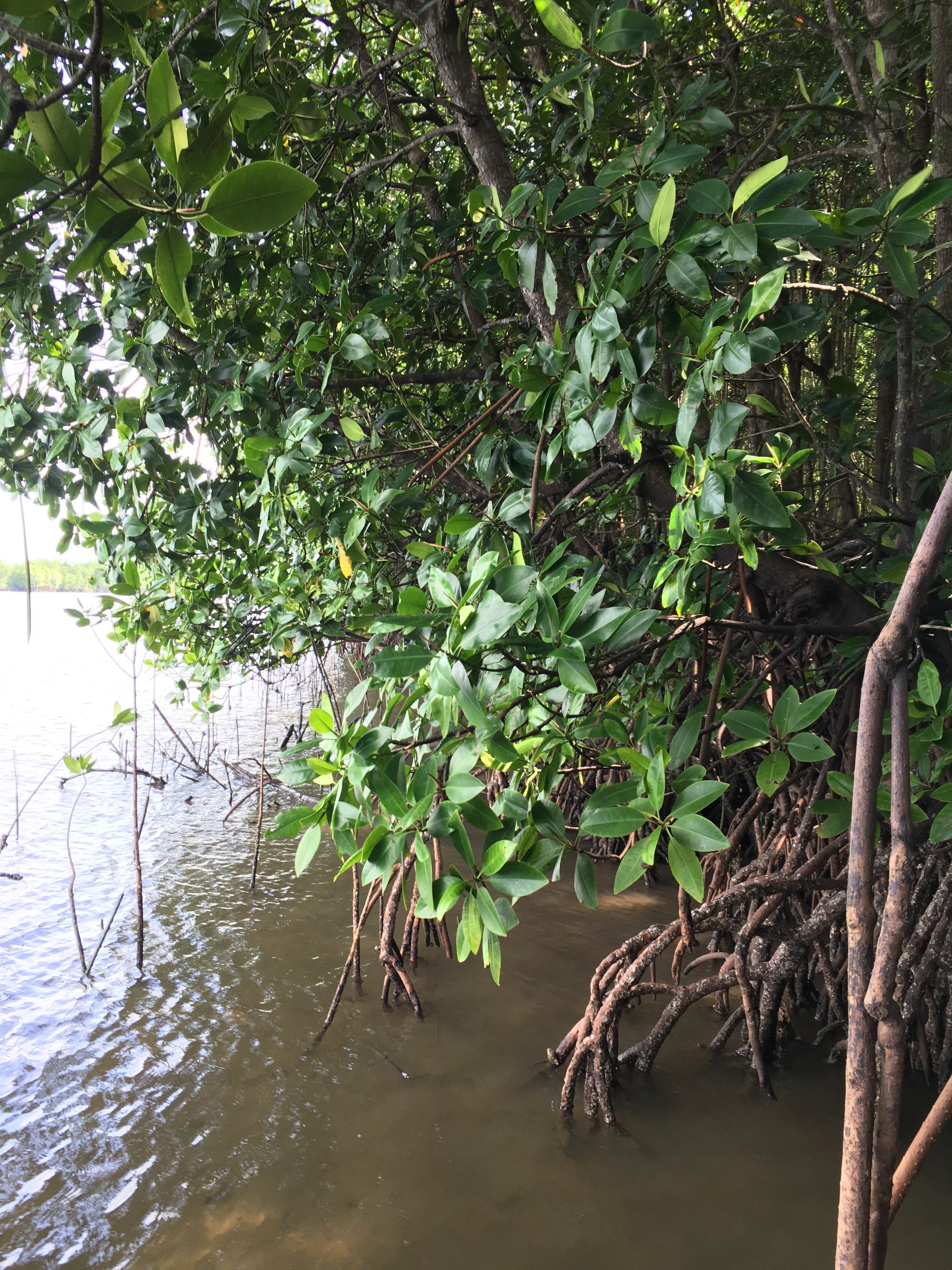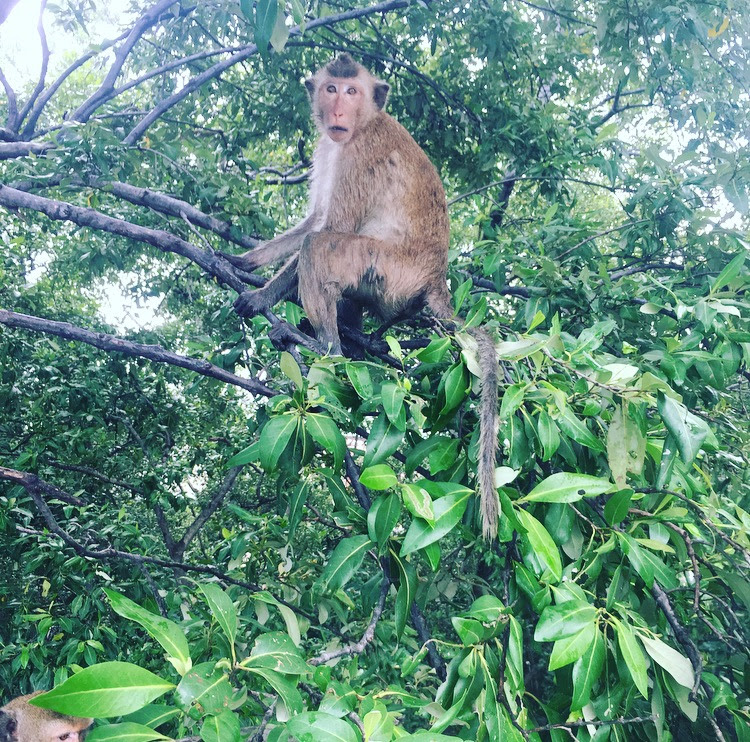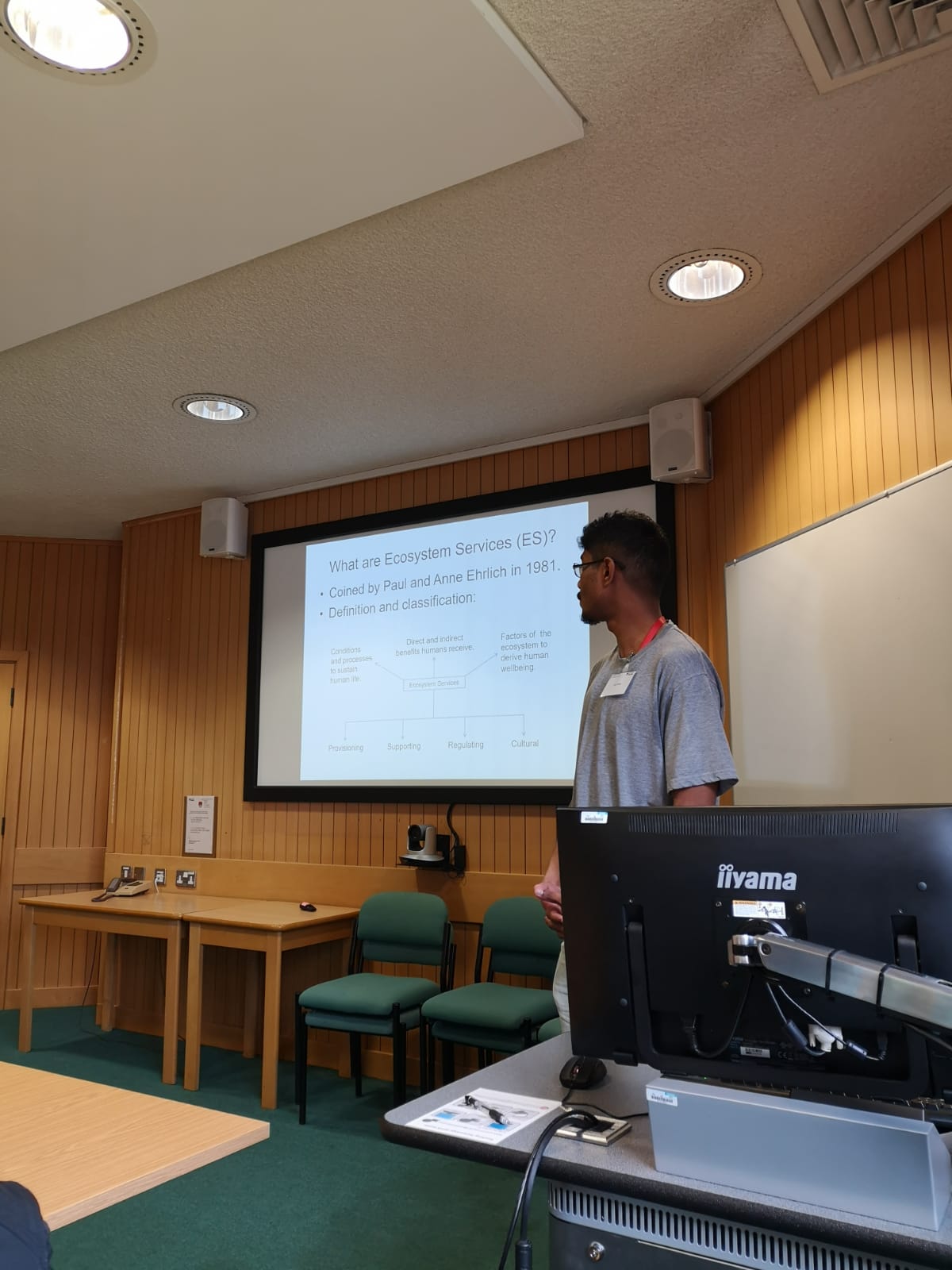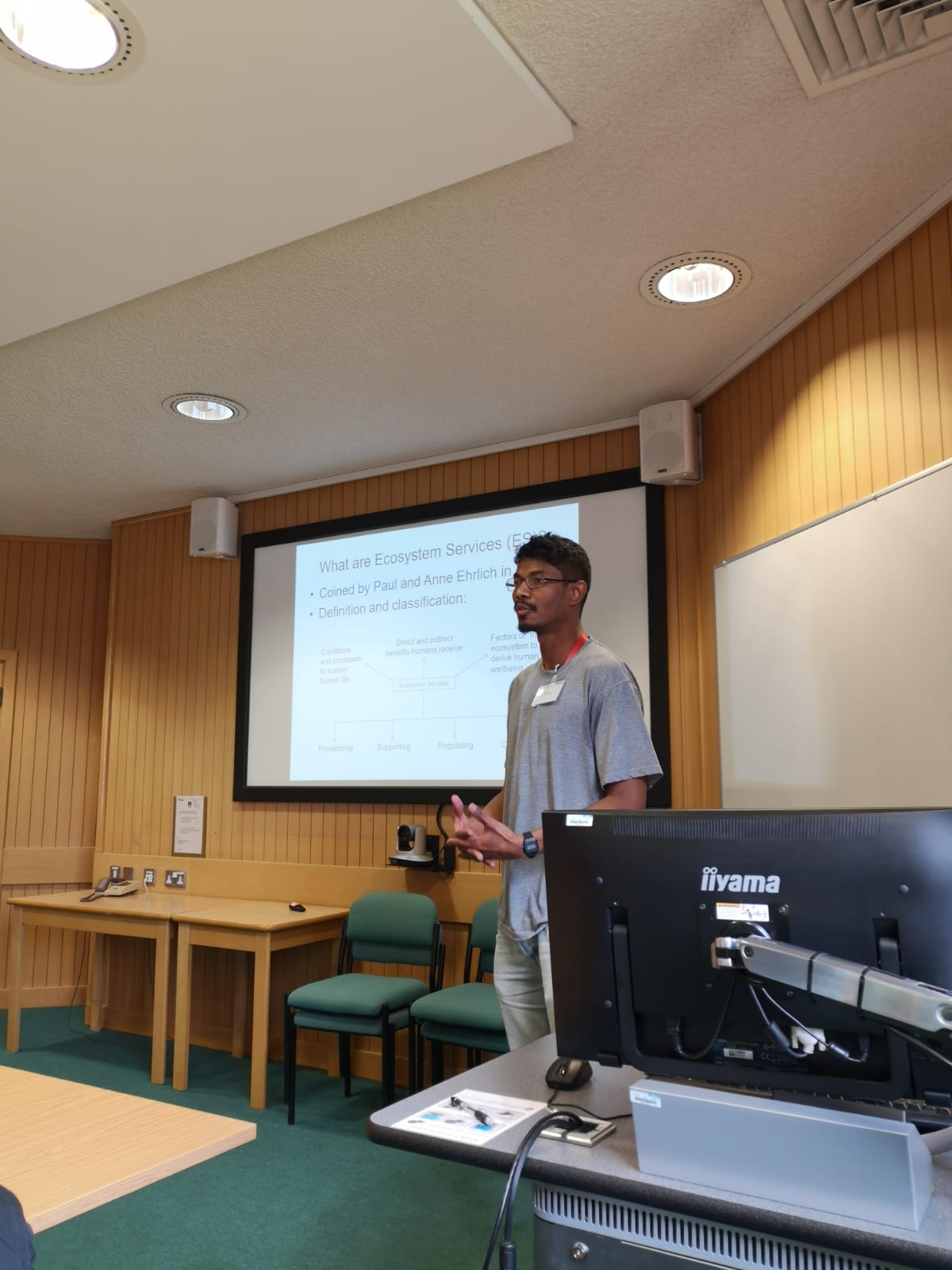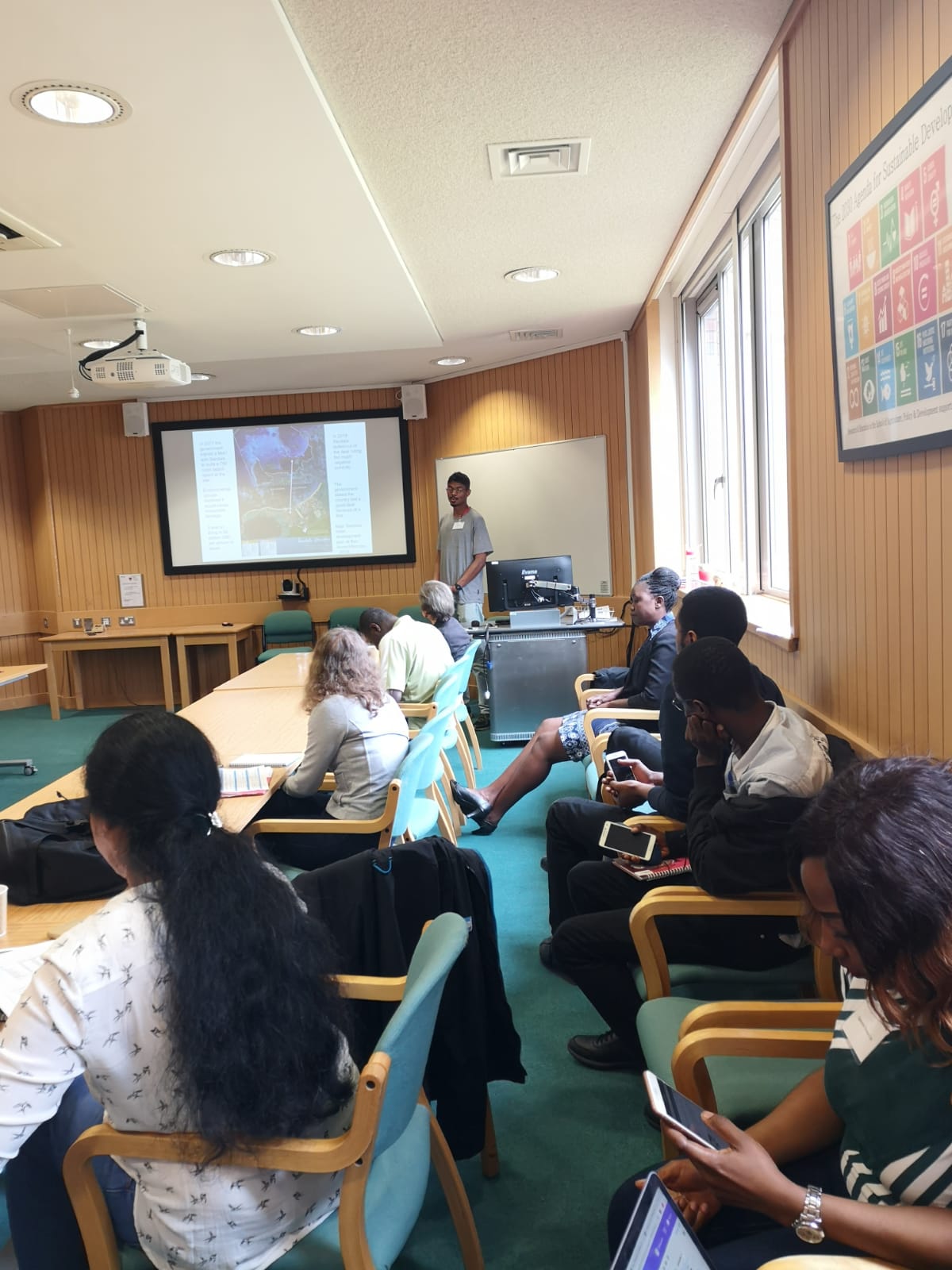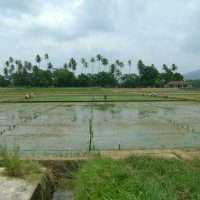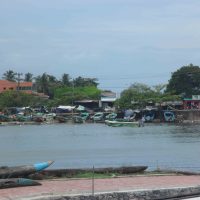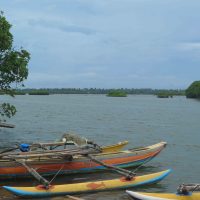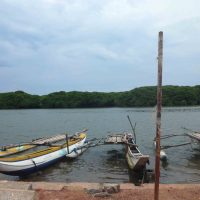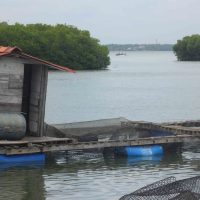Angie Elwin PhD Thesis and prior research
Social-ecological resilience in mangrove shrimp farming communities in Thailand
My PhD thesis explored social-ecological resilience in mangrove shrimp farming communities in Thailand. My methods were interdisciplinary, involving mangrove forest carbon stock assessments in abandoned shrimp ponds to investigate the impact of land-use change on ecosystem carbon and patterns of ecosystem recovery over time, and participatory approaches to explore local ecological knowledge and perceptions of ecosystem health and ecosystem service delivery among mangrove-dependent communities in coastal Thailand.
I also hold an MSc in Marine Environmental Protection, where my research involved mapping above ground biomass and degradation status of mangrove forests in Zanzibar (Tanzania). I have additionally spent time working in coastal Kenya, assisting with a mangrove Payments for Ecosystem Services project, and on a NERC funded research project to quantify the export of particulate and dissolved carbon from Kenyan mangrove forests.
Photos taken in Trat, Thailand of the mangrove sites by Angie.
Niko Howai PhD Thesis
The economic valuation, conservation and management of mangrove ecosystem services in Tobago
My PhD research is focused on a valuation study of mangrove forested sites in Trinidad and Tobago. In particular there are challenges in deciding on efficient utilisation of the mangrove forested areas in South West Tobago. The various stakeholders such as the government authorities, communities and non-governmental organisations (NGOs) such as environmental groups may have different interests and plans in how the site should be used. In one instance this research endeavours to determine how the communities surrounding the sites value the mangroves.
The valuation technique being used is choice modelling which is classified as a stated preference approach. More specifically a choice experiment will be conducted at various communities around mangrove forest areas to elicit willingness to pay estimates for a conservation and management programme of the area. The outcome of this research aims to provide support to the authorities in decision making and policy development in the allocation of the mangrove forest resources in Tobago. I had the opportunity to present my thesis work so far at an internal conference for PhD students held at the University of Reading, School of Agriculture Policy and Development (see images below).
Photos courtesy Ponjan Pinpart at the 2019 Applied Economics and Marketing/International Development Conference at the University of Reading.
Menuka Udugama PhD thesis and current research
My PhD thesis looked at the spatial-dynamics of animal foraging patterns using two Bayesian simulation-based methods to suggest better resource management strategies specially in cases where data are hard to come by. I also hold a MSc. and a MPhil. in agricultural and resource economics. I am currently working as a Senior Lecturer attached to the Wayamba University of Sri Lanka. My current research interest lies on the economic, social and environmental aspects of marine and mangrove ecosystems.
I have been involved in resource and environmental valuation-based research as a co-investigator and a team member funded by several local and international bodies such as the South Asian Network for Development & Environmental Economics (SANDEE), National Science Foundation of Sri Lanka (NSF) and the Ministry of Environment and Renewable Energy of Sri Lanka (‘pricing the island project’). Currently, I’m investigating the coastal resource use in the Marine Protected Areas of Sri Lanka with a special focus on the socio-economics and management of mangroves ecosystems. This project is funded by the Wayamba University Research grant scheme. This study will explore the potential for spatially-targeted incentive systems for coastal communities for sustainable coastal management. A choice experiment will also be carried out to elicit the willingness-to-pay of the mangrove dependent communities and other stakeholders for the conservation of these areas.

